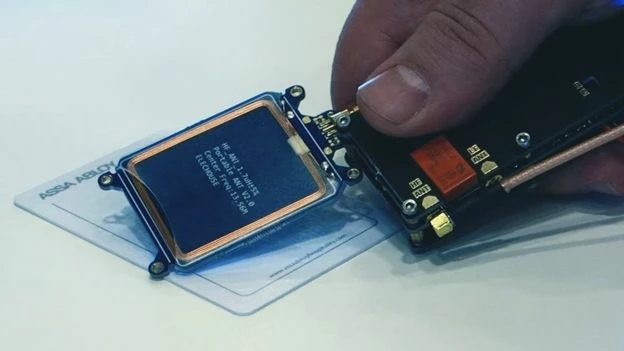
Partner Article
Hotel Key Cards Cloned to Create MasterKey
Researchers at cybersecurity firm F-Secure have found that global hotel chains and hotels worldwide are using an electronic lock system that could be exploited by an attacker to gain access to any room in the facility. The design flaws discovered in the lock system’s software, which is known as Vision by VingCard and used to secure millions of hotel rooms worldwide, have prompted the world’s largest lock manufacturer, Assa Abloy, to issue software updates with security fixes to mitigate the issue.
The researchers’ attack involves using any ordinary electronic key to the target facility – even one that’s long expired, discarded, or used to access spaces such as a garage or closet. Using information on the key, the researchers are able to create a master key with privileges to open any room in the building. The attack can be performed without being noticed.
“You can imagine what a malicious person could do with the power to enter any hotel room, with a master key created basically out of thin air,” said Tomi Tuominen, Practice Leader at F-Secure Cyber Security Services. “We don’t know of anyone else performing this particular attack in the wild right now.”
The researchers’ interest in hacking hotel locks was sparked a decade ago when a colleague’s laptop was stolen from a hotel room during a security conference. When the researchers reported the theft, hotel staff dismissed their complaint given that there was not a single sign of forced entry, and no evidence of unauthorized access in the room entry logs. The researchers decided to investigate the issue further, and chose to target a brand of lock known for quality and security. These security oversights were not obvious holes. It took a thorough understanding of the whole system’s design to identify small flaws that, when combined, produced the attack. The research took several thousand hours and was done on an on-and-off basis, and involved considerable amounts of trial and error.
“We wanted to find out if it’s possible to bypass the electronic lock without leaving a trace,” said Timo Hirvonen, Senior Security Consultant at F-Secure. “Building a secure access control system is very difficult because there are so many things you need to get right. Only after we thoroughly understood how it was designed were we able to identify seemingly innocuous shortcomings. We creatively combined these shortcomings to come up with a method for creating master keys.”
F-Secure notified Assa Abloy of the findings and has collaborated with the lockmaker over the past year to implement software fixes. Updates have been made available to affected properties.
“I would like to personally thank the Assa Abloy R&D team for their excellent cooperation in rectifying these issues,” said Tuominen. “Because of their diligence and willingness to address the problems identified by our research, the hospitality world is now a safer place. We urge any establishment using this software to apply the update as soon as possible.”
This was posted in Bdaily's Members' News section by BS .
Enjoy the read? Get Bdaily delivered.
Sign up to receive our popular morning National email for free.








 Raising the bar to boost North East growth
Raising the bar to boost North East growth
 Navigating the messy middle of business growth
Navigating the messy middle of business growth
 We must make it easier to hire young people
We must make it easier to hire young people
 Why community-based care is key to NHS' future
Why community-based care is key to NHS' future
 Culture, confidence and creativity in the North East
Culture, confidence and creativity in the North East
 Putting in the groundwork to boost skills
Putting in the groundwork to boost skills
 £100,000 milestone drives forward STEM work
£100,000 milestone drives forward STEM work
 Restoring confidence for the economic road ahead
Restoring confidence for the economic road ahead
 Ready to scale? Buy-and-build offers opportunity
Ready to scale? Buy-and-build offers opportunity
 When will our regional economy grow?
When will our regional economy grow?
 Creating a thriving North East construction sector
Creating a thriving North East construction sector
 Why investors are still backing the North East
Why investors are still backing the North East